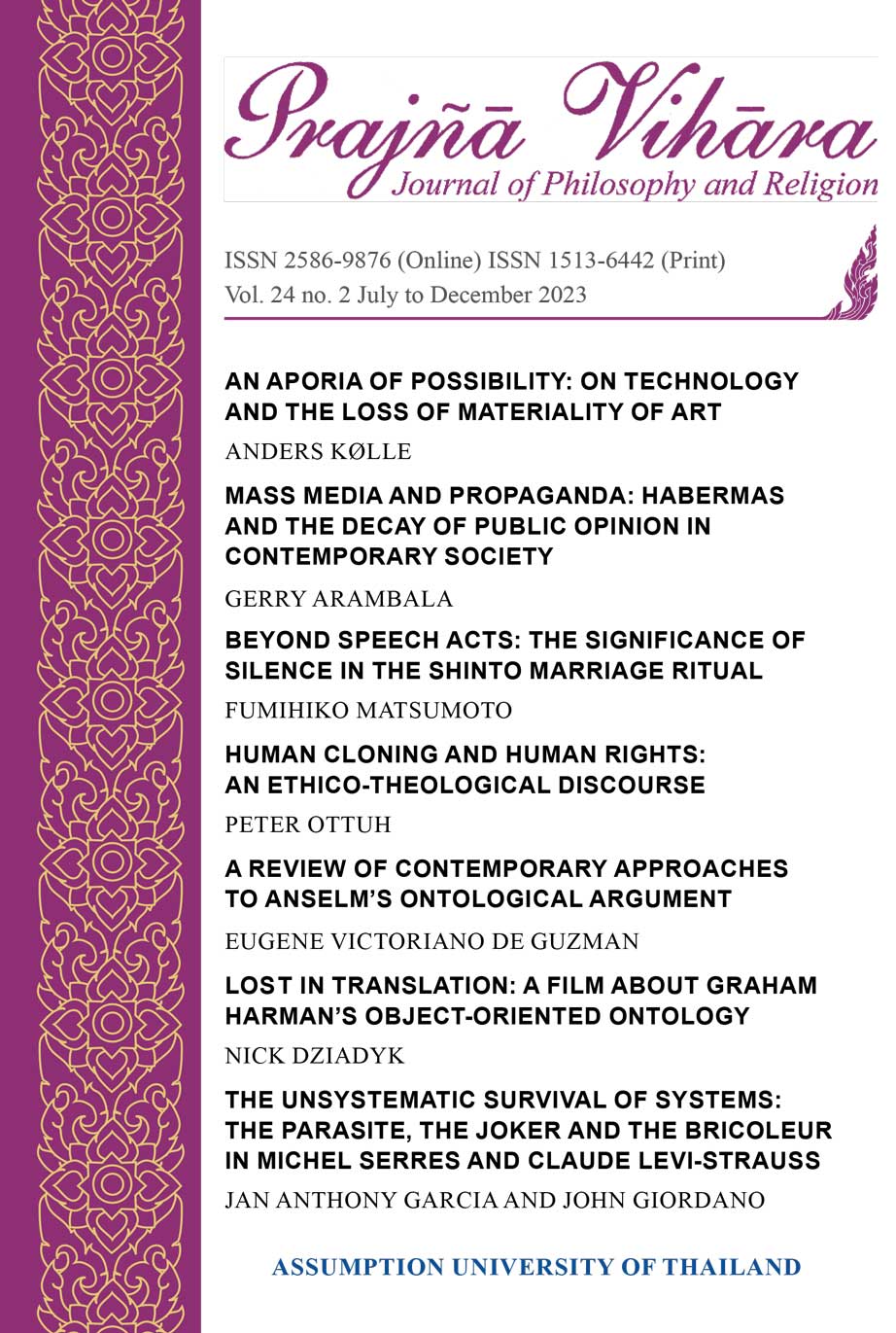A REVIEW OF CONTEMPORARY APPROACHES TO ANSELM'S ONTOLOGICAL ARGUMENT
Keywords:
maximal properties; ontological argument; proof for the existence of GodAbstract
The Ontological argument for the existence of God is an age-old argument. But it still has power and is debated in contemporary times. This article will review the debate concerning maximality in relation to the Monk Guanilo's parody of Anselm's argument with his example of the "perfect island." Alvin Plantinga attempted to defend Anselm and the validity of the Ontological argument by showing that maximality does not apply to existing entities but to God alone. Brian Garrett defends the objection of Guanilo by defending the idea of the maximal in relation to an island. Finally, Edgar Danielyan, defended Plantinga against Garrett. The author shall stand on behalf of Anselm’s defenders to reiterate the coherence and validity of the argument. The “something-than-which-nothing-greater-can-be thought," or God, cannot be replaced or substituted by any worldly existing entities, for example, the perfect Island.
References
Charlesworth Max. J. St. "Anselm’s Argument." In: Sophia Studies in Cross-cultural Philosophy of Traditions and Cultures vol 30. Switzerland, Springer, 2019, p. 105-114.
Danielyan, Edgar. "On behalf of St. Anselm." Analysis 75 p. 405-407, 2015.
Garrett, Brian. "On behalf of Gaunilo." Analysis 73 p. 48-482, 2013.
______. “Some comments on a modal ontological argument” Prajñā Vihāra 5:2 p. 1-5, 2004.
Johnson, Oliver. "God and St. Anselm." The Journal of Religion 45: 362-334, 1965.
Lawhead, William. The Voyage of Discovery: A Historical Introduction to Philosophy. Fourth Edition. United States of America: Stamford, Cengage Learning, 2015, p. 165-166.
Downloads
Published
Issue
Section
License
Consent to Publish and Transfer of Copyright
By publishing in Prajñā Vihāra, the author agrees to transfer and assign to Assumption University of Thailand as the Publisher of the Journal, the copyright to the Article in any form, including any and all rights, interests and claims related to it.
The author does retain the following rights:
- The right to make further copies of the published article for their use in classroom teaching.
- The right to reuse all or part of the published article in a compilation of his or her own works or in textbooks of which they are the author or coauthor.
- The right to make copies of the published article for internal distribution within their academic institution.
- All proprietary rights other than copyright, such as patent rights.
- The Article is his or her original work, and has not been published previously and is not under consideration for publication elsewhere.
- It does not contain any matter that is obscene, libelous, or contrary to law.
- They have obtained the necessary license or written authority and paid any and all related fees for the use and reproduction of text, tables, illustrations and other copyrighted work from the owners of the intellectual property rights, and can furnish the Publisher copies of the license/written authority and proof of payment of related fees upon the signing of this Agreement.
- They have the consent of the Co-Authors of the article upon the signing of this Agreement.
- In the event that they intend to republish, reprint or translate all or part of the Article in other publications, they will secure the prior written permission from the journal Editor.
Prajñā Vihāra adopts the Creative Commons Attribution (CC BY-NC-ND) license


